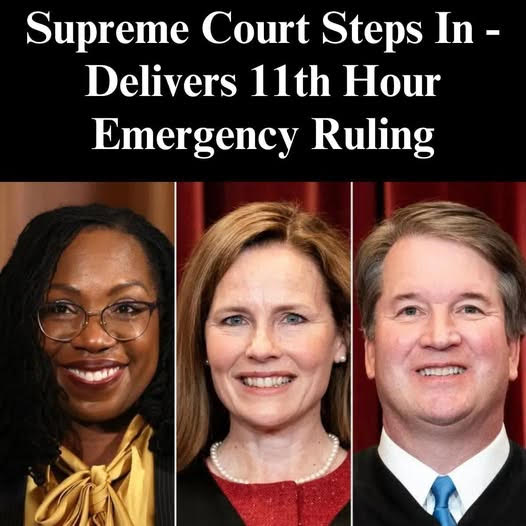In a significant 8-1 ruling, the U.S. Supreme Court has upheld the prohibition on firearm possession for individuals under domestic violence restraining orders. This landmark decision, handed down on Friday, reaffirms the constitutionality of a federal statute that prevents individuals deemed a credible threat to others’ safety from owning firearms. Justice Clarence Thomas was the sole dissenting voice in the ruling.
The decision upholds Section 922(g)(8) of federal law, which restricts firearm access for anyone identified by a court as a potential threat.
Focus on Public Safety and Legal Precedent
Chief Justice John Roberts, writing the majority opinion, emphasized that the ruling is in line with the nation’s historical approach to regulating firearm access for individuals considered dangerous.
“Our Nation’s firearm laws have long included provisions to prevent those who pose a threat from misusing firearms,” Roberts stated. “Section 922(g)(8) is well within this historical context in this case.”
He further clarified that the Second Amendment should not be understood in a rigid or outdated way. Roberts explained that some courts had misinterpreted the Court’s earlier decision in New York State Rifle & Pistol Association v. Bruen, and reiterated that if the Second Amendment were strictly static, only “muskets and sabers” would be covered. He argued that modern laws addressing public safety concerns, similar to those during the nation’s founding, can still be deemed constitutional.
This decision arrives amidst growing discussions over the scope of Second Amendment rights, particularly in the wake of New York Times v. Sullivan, the landmark 1964 ruling setting the “actual malice” standard for defamation cases involving public figures. This case, which was not addressed in the current session, has provided media outlets with strong protections against libel suits for decades.
Casino mogul and political donor Steve Wynn recently had his defamation lawsuit against the Associated Press dismissed by Nevada’s highest court. Wynn, who has denied allegations of sexual misconduct from the 1970s, has since requested a reconsideration of the legal standards. Despite some conservative justices calling for a review of Sullivan, the Court has repeatedly declined to hear such cases, indicating insufficient support for overturning this precedent.
